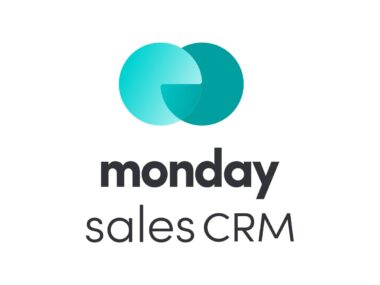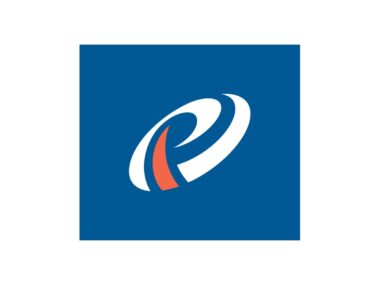Key Features of Airbase Expense Management Software
Airbase, a leading solution in the realm of expense management software, offers a comprehensive suite of tools designed to streamline financial operations for businesses. This review delves into the unique features of Airbase, evaluating its efficiency and effectiveness in managing company expenses, vendor payments, and financial reporting.
Key Features:
- Consolidated Spend Management: Airbase Expense Management Software combines three core aspects of financial management: accounts payable, employee expense reimbursement, and corporate card program. This integration allows for a unified platform that manages all non-payroll spend, enhancing visibility and control over company finances.
- Real-Time Expense Policies and Approvals: The Airbase Expense Management Software enables real-time enforcement of company policies and instant approval workflows. This feature ensures that all transactions comply with company policies, thereby mitigating the risk of unauthorized or non-compliant spending.
- Robust Corporate Card Program: Airbase Expense Management Software offers physical and virtual cards that can be controlled and managed through the software. These cards can have specific rules and limits set, aligning with budgetary constraints and project needs.
- Seamless Integration with Accounting Systems: Airbase Expense Management Software integrates effortlessly with popular accounting software like QuickBooks, Xero, and NetSuite. This integration ensures that financial data flows directly into accounting records, reducing manual entry and increasing accuracy.
- Comprehensive Reporting and Analytics: The platform provides detailed insights into spending trends and financial health through its advanced reporting capabilities. These analytics aid in strategic decision-making and help in identifying areas for cost savings.
- Vendor Management: Airbase simplifies vendor payments and streamlines the accounts payable process. It supports various payment methods including ACH, checks, and international wire transfers, providing flexibility and efficiency in vendor management.
- Customizable User Interface: The software offers a highly customizable interface that can be tailored to meet the unique needs of different teams and departments within an organization.
- Security and Compliance: Airbase places a strong emphasis on security and compliance, ensuring that financial data is protected with robust security measures. It is compliant with major standards and regulations, providing peace of mind for businesses.
Conclusion: Airbase stands out in the expense management software market through its comprehensive and integrated approach to managing business finances. Its combination of real-time policy enforcement, robust corporate card program, seamless integration with accounting systems, and advanced reporting capabilities make it an invaluable tool for businesses looking to streamline their financial operations. The platform’s emphasis on security, compliance, and customization further enhances its appeal to a wide range of industries.
Performance
- User Experience and Interface: Airbase Expense Management Software offers a user-friendly interface, which simplifies the navigation through various features. The intuitive design ensures that users, regardless of their technical proficiency, can efficiently manage expenses and payments. Daily tasks such as submitting expense reports, setting up vendor payments, or monitoring budgets are streamlined, enhancing user productivity.
- Efficiency in Expense Reporting: One of the standout aspects in daily use is the ease of submitting and approving expense reports. Employees can quickly upload receipts and submit reports through the platform, while managers have the tools to approve or query these submissions promptly. This expedited process reduces the turnaround time for reimbursements, which is a significant benefit for employees.
- Real-time Expense Management: Airbase Expense Management Software excels in providing real-time visibility into expenses. The platform updates expenditures instantaneously, allowing for accurate tracking of budget compliance. This real-time data is crucial for managers and finance teams to make informed decisions and adjustments to spending policies as needed.
- Corporate Card Management: The ability to issue and manage corporate cards through Airbase is particularly useful for daily operations. Customizable controls and limits on these cards empower businesses to enforce expense policies effectively while giving employees the flexibility to make necessary purchases.
- Integration with Accounting Software: The seamless integration with accounting systems like QuickBooks, Xero, and NetSuite is a significant advantage in day-to-day operations. This integration ensures that all financial data is synchronized and updated across platforms, reducing manual data entry and the potential for errors.
- Vendor Payments and Accounts Payable: Airbase Expense Management Software simplifies the accounts payable process by centralizing vendor payments. The platform supports multiple payment methods, making it easier to handle diverse vendor preferences. This feature is particularly beneficial for businesses dealing with a large number of vendors or international transactions.
- Reporting and Analytics: On a daily basis, Airbase’s reporting tools provide valuable insights into spending patterns and financial health. These analytics are essential for strategic planning and identifying opportunities for cost optimization.
- Customer Support and Training: In terms of support, Airbase Expense Management Software offers comprehensive resources and responsive customer service. This aspect is crucial for resolving any issues swiftly and ensuring that businesses can utilize the software effectively in their daily operations.
In everyday use, Airbase Expense Management Software demonstrates robust performance and reliability as an expense management tool. Its user-friendly interface, efficient expense reporting, real-time management, and seamless integrations make it an indispensable asset for businesses. By enhancing operational efficiency and providing critical financial insights, Airbase supports businesses in maintaining robust financial health and streamlined processes.
Pros
Cons
Airbase presents a powerful solution for managing business expenses, combining several financial management tools into one platform. Its strengths lie in integrated management, real-time control, and advanced reporting capabilities. However, considerations such as the learning curve, cost, and customization should be taken into account by businesses evaluating Airbase as their expense management software.
Conclusion
Technical Expertise: My evaluation of Airbase is informed by a comprehensive understanding of expense management systems, cloud-based technologies, and software integration capabilities. This technical lens enables a detailed assessment of Airbase’s architecture, security features, and integration with other financial systems. I explore how these technical elements translate into efficiency, reliability, and scalability in a business context.
Practical Application: Beyond technical specifications, my analysis delves into the practical usability of Airbase. This includes a user-centric examination of the interface, ease of navigation, and the overall user experience. I consider how Airbase addresses the daily challenges faced by finance teams, from streamlining the approval process to enhancing policy compliance and real-time budget tracking.
Industry Trends and Benchmarking: My perspective is also shaped by an awareness of current trends and benchmarks in the expense management software industry. This involves comparing Airbase with other leading platforms, evaluating how it stands out in terms of innovation, feature set, and overall value to businesses of varying sizes and industries.
Compliance and Security Focus: In today’s digital age, security and compliance are paramount. My review of Airbase pays special attention to its compliance with financial regulations and data security standards, a critical aspect for businesses handling sensitive financial data.
Cost-Benefit Analysis: Another key facet of my review process is a thorough cost-benefit analysis. This not only covers the direct costs associated with using Airbase but also assesses the return on investment in terms of time saved, reduction in errors, and improved financial visibility and control.
Customized Solutions Evaluation: Recognizing that different businesses have unique needs, my analysis of Airbase includes how well it caters to diverse requirements. This includes its scalability, customization options, and the ability to integrate with specialized financial systems.
User Feedback and Community: Lastly, my perspective incorporates feedback from actual users of Airbase. This real-world input is invaluable in understanding the software’s performance, reliability, and areas for improvement, offering a holistic view of its impact on business operations.
In conclusion, my expertise in the field of expense management software provides a comprehensive, nuanced, and practical analysis of Airbase. This unique perspective ensures that businesses considering Airbase receive a thorough understanding of what the software offers, helping them make informed decisions that align with their financial management needs.





